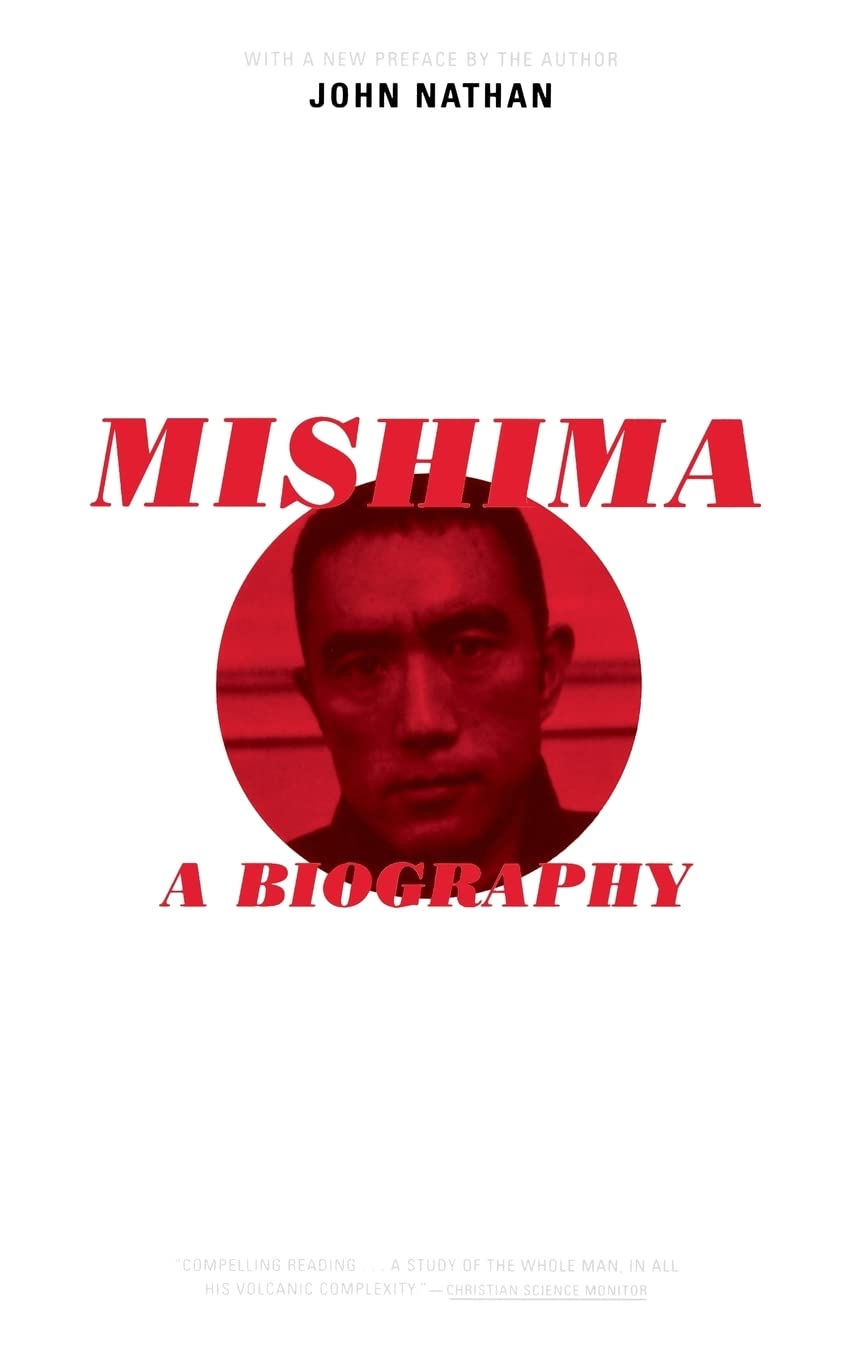Customer Services
Copyright © 2025 Desertcart Holdings Limited


Mishima: A Biography
H**Y
Strange, charismatic, crazy genius
I'm so glad I found this biography. I've enjoyed reading Mishima's books over the years and this now rounds out the experience to put more context to the author's life. This book explains so much, from the impact of the appalling behaviour of grandmother and parents over much of his childhood, through to the bizarre last few months of Mishima's life. I say bizarre as it's very hard to take seriously a coup being plotted in meetings at the Misty Sauna Baths! And as it eventuated, the "coup" was more about theatre and fulfilment of a death wish than achievement of a (fascist?) revolution. We hear of Mishima's confused and ambiguous sexuality, his blatant exhibitionism, his relationships with the literary fraternity - and the masochistic streak that drove his overwhelming obsession with his ideal of a beautiful death. That uncertain boundary between genius and insanity was pushed to extremes - and then pushed again.I have had grave misgivings about Mishima's extreme right wing views - but much is forgiven as he was a brilliant and confronting author. Perhaps it was as well that it all ended before getting altogether too ugly. Keep this biography to hand as a reference point for when you next delve into his work.
C**H
Comprehensive and detailed account of Mishima's life and death
I have read the Stokes bio and personally I believe this is the better biography to date. I don't believe this bio to be tawdry at all. Nathan takes the reader on a fascinating trip into the live of the personal and somewhat bizarre world of Mishima, without being tawdry. A must!
R**R
Mishima: A Biography
Mishima is a writer easy to admire, but very hard to love--this biography reveals an even more difficult personality than suggested by the unsettling novels themselves. The author knew Mishima personally, and this adds a vividness to this biography.
J**R
Outstanding biography. With his unique point of view Nathan ...
Outstanding biography. With his unique point of view Nathan understands Mishima's behavior as much more nuanced than most other critics. He writes it lucidly himself. Bravo!
A**R
Mishima
It came on time. The book was enjoyable. I learned a lot about Mishima. I would reccmmend this book to some people but not young people.
D**R
While it's been years since I've read them, I ...
While it's been years since I've read them, I can tell you unequivocally that of the two long-standing English language biographies of Mishima - the one by Henry Scott Stokes, and this one by John Nathan - the Nathan is by far the more sensitive, sympathetic, and understanding. (I haven't yet finished Persona, the recently translated biography by Naoki Inose and Hiroaki Sato.) Scott Stokes' work is circumscribed by its author's narrow bourgeois conventionality - he never really gets beyond that, despite having been friends with his subject -; whereas Nathan draws out the whole man, which is after all the proper job of biography.
L**W
Hiding in Plain View
While Mishima's suicide took those who knew him by surprise (or so it is said), who could not read "Confessions of a Mask" "Thieves" or "Patriotism" without noting the author's fascination with suicide? In this book John Nathan reviews his life and work and in doing so shows how clearly Mishima's writings show his intent.Nathan takes the reader through Mishima's oppressed childhood, his life during and following the war, his marriage and eventually the workouts, the gravitation to the right wing and his personal army of young men. As you read this book, you draw the conclusion that Mishima's life was his own work of art, building to his ultimate suicide. His political ideas are so disjointed they appear to be his attempt to find a rationale for his final act, which he had decided upon long ago.Nathan had been on the cold end of Mishima's practice of freezing out those who crossed his lines, deserved or not. In Nathan's case this was translating a novel (which eventually won a Nobel Prize) for another Japanese author at the time he had a verbal commitment to translate a novel of Mishima's. Nathan left Japan for the US without an attempt to reconcile. After Mishima's death, Nathan returned to Japan under contract to write this biography. Mishima's friends and family did not freeze him out, quite the contrary, they cooperated.I held back a star because I don't think Nathan put all his resources into this. While having known his subject, he doesn't use this insight much, relying instead on Mishima's writings and interviews with others. Also, while he explained some of the changing dynamics of Japanese society I don't think he fully used his nearly unique capacity to interpret in Japan for western audiences.
E**L
Five Stars
Vg, thanks.
D**E
Tragic story.
This is one amazing story. Hard to imagine what was going on in this man's mind. Engaging.
Trustpilot
2 weeks ago
2 weeks ago